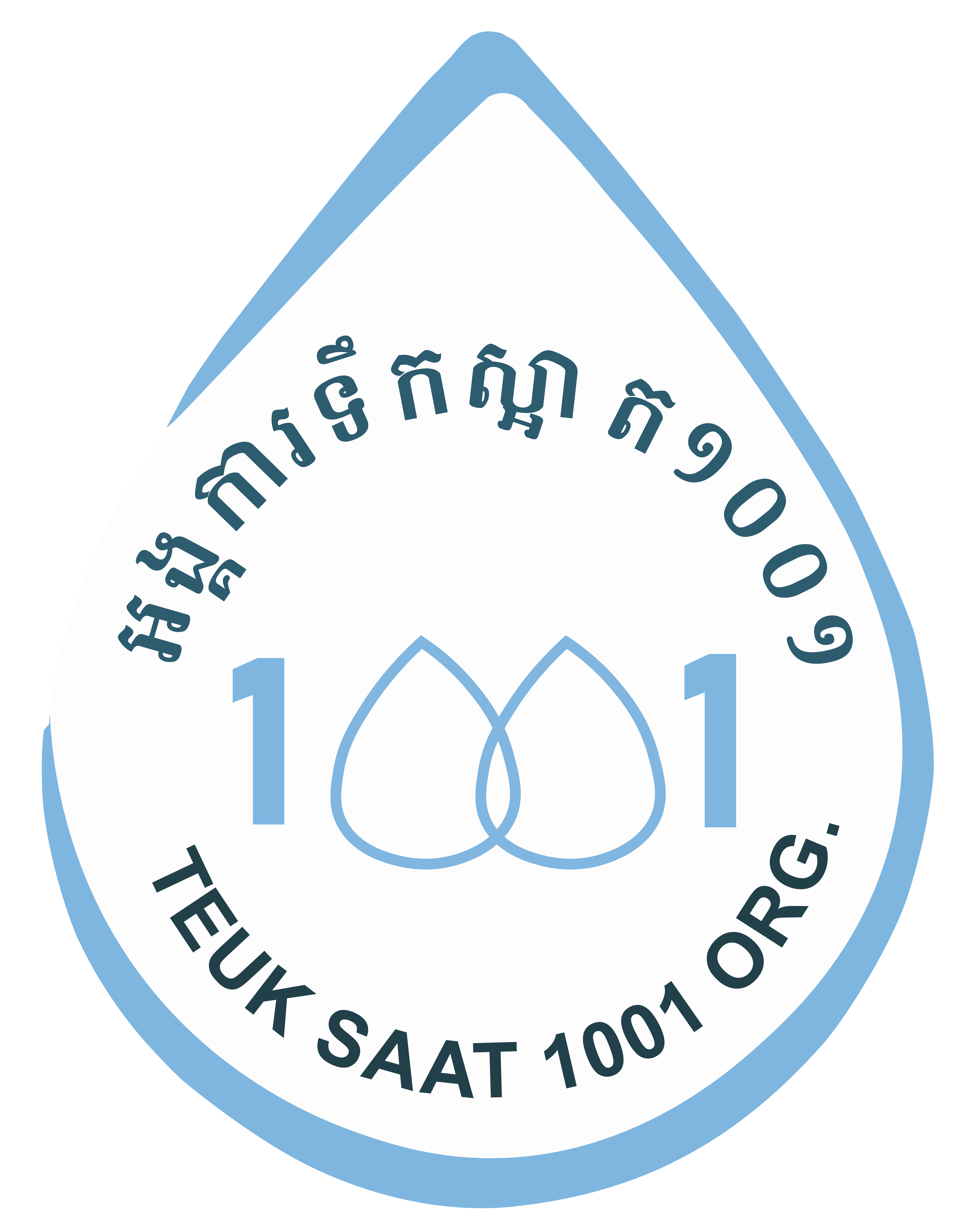IMPACT
CONTRIBUTIONS TO THE SUSTAINABLE DEVELOPMENT GOALS
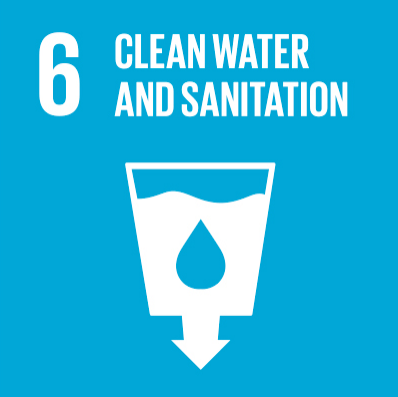
In 2024, Teuk Saat 1001 provided safe water to 1,152,000 beneficiaries.
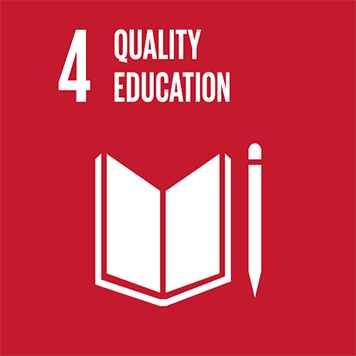
In 2024, 376,000 children received safe water for free at school thanks to the “Water in School” Program.

By selling their water, entrepreneurs began earning a monthly income slightly above the national average. In addition, there are 3 sustainable jobs created per kiosk, including 1 occupied by women.
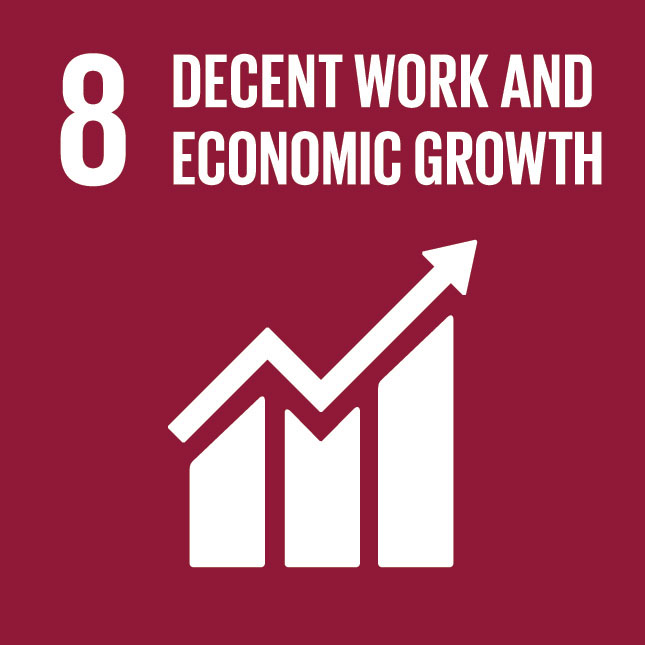
Throughout our network we created jobs for almost 1,000 entrepreneurs and operators.

In 2024, an estimated 27,000 tons of CO2 were avoided across our network by preventing the use of charcoal and wood to boil water. This number is equivalent to the average annual carbon footprint of 5,600 Cambodian households.
OUR NEWTWORK
Our network covers 25% of rural Cambodia thanks to 340+ water kiosks in 18 provinces across the country.

FOCUS ON OUR ENVIRONMENTAL IMPACT
By providing safe drinking water to consumers, we eliminate the need to boil water with wood or charcoal. We therefore reduce CO2 emissions. To calculate these savings, we compare the carbon emissions emitted by our current process to the baseline situation where people use firewood or charcoal to boil water. The difference is equivalent to carbon credits generated by our activities (see below).
Carbon credits are an additional source of income for Teuk Saat 1001 to achieve economic sustainability and continue our mission. Are you interested in purchasing carbon credits? Please contact us at info@teuksaat1001.com
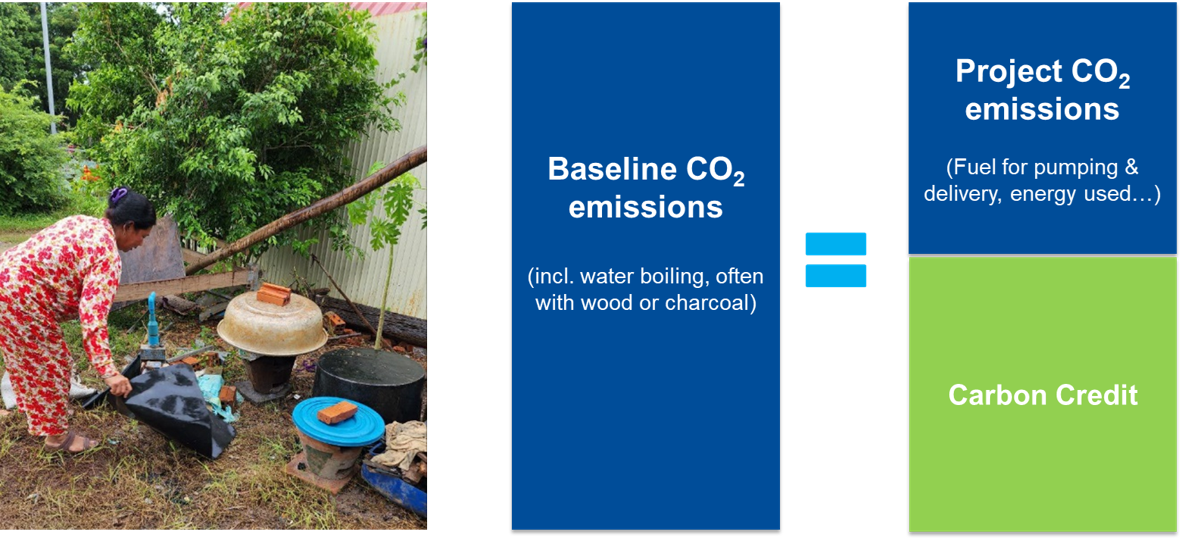
What is a Carbon Credit ?
A carbon credit is a financial instrument that represents the right to emit one ton of carbon dioxide into the atmosphere. They are part of a market-based approach to mitigate climate change by reducing greenhouse gas emissions. To counteract carbon emissions, initiatives and projects are implemented to reduce or eliminate greenhouse gases from the atmosphere. When such activities result in reduced emissions, they are awarded carbon credits. Carbon credits can be bought, sold and traded on the carbon market. By purchasing carbon credits, entities can offset their own emissions and contribute to the overall reduction of greenhouse gas emissions. Overall, carbon credits serve as a tool to incentivize emissions reductions and encourage the transition to a low-carbon economy.
